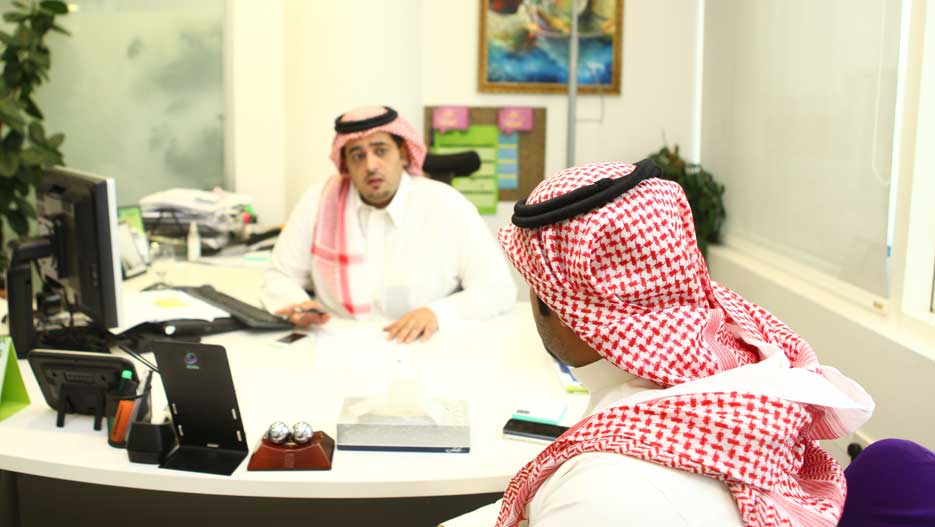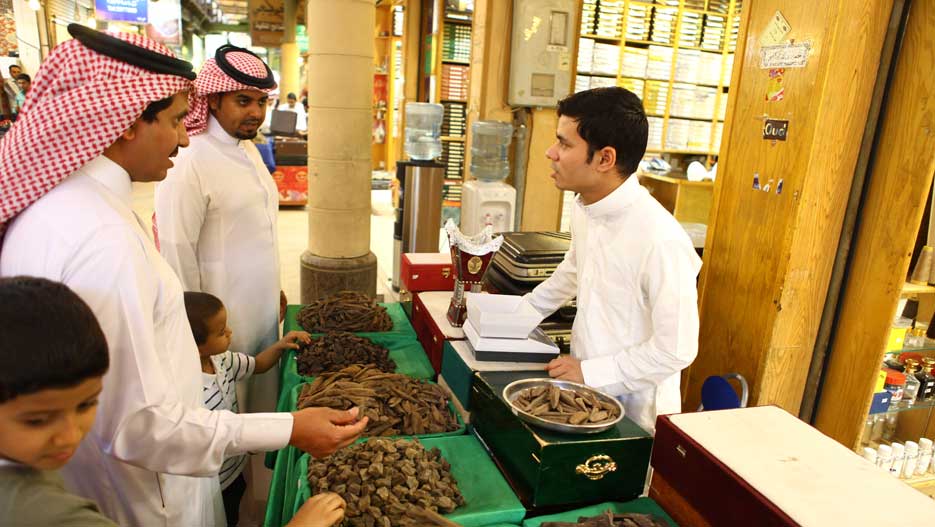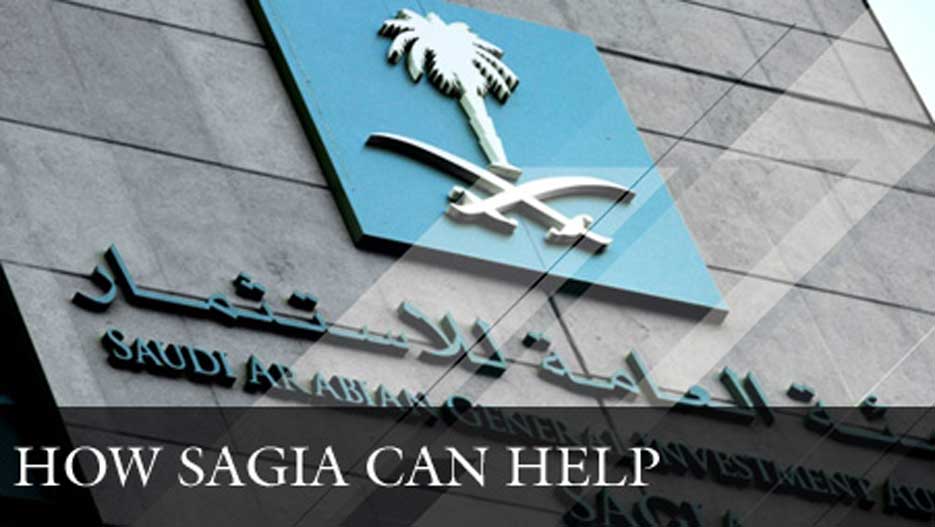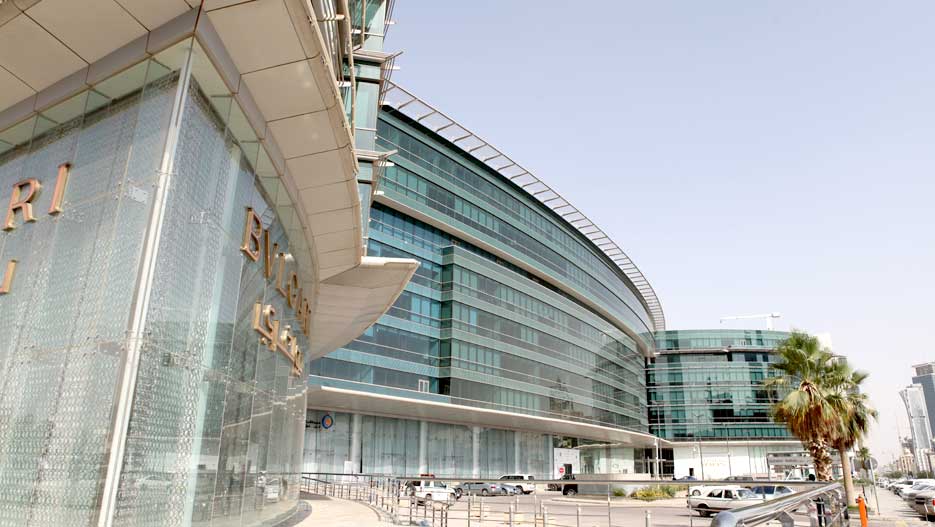Doing Business in Saudi Arabia: Steady Improvement
Over the past decade, Saudi Arabia has emerged as one of the best places to do business in the Middle East. In its ranking “Ease of Doing Business” Index 2011, the World Bank ranked 11th out of 183 countries. Saudi Arabia has made significant progress by moving up to 11th place from the 67th place in the global ranking it occupied in 2005.

Over the past decade, Saudi Arabia has emerged as one of the best places to do business in the Middle East. In its ranking “Ease of Doing Business” Index 2011, the World Bank ranked 11th out of 183 countries. Saudi Arabia has made significant progress by moving up to 11th place from the 67th place in the global ranking it occupied in 2005.
However, this was a short-lived success, as Saudi Arabia slid to 26th place in 2014 trailing, after the UAE in 23rd place. Bahrain, Oman and Qatar ranked 46th, 48th and 49th.
However, this was a short-lived success, as Saudi Arabia slid to 26th place in 2014 trailing, after the UAE in 23rd place. Bahrain, Oman and Qatar ranked 46th, 48th and 49th.
The general improvement in the ranking is a testimony to a number of important reforms implemented in the past 5 years to ease the regulatory environment, protect investment, and enforce commercial contracts, making Saudi Arabia a more competitive and attractive investment destination globally.
Foreign Direct Investments and Doing Business
Saudi Arabia continues to improve in a number of categories, and foreign investment in the Kingdom continues to be an attractive option for many foreign investors.
While foreign direct investment (FDI) weakened to Saudi Arabia in 2013, the Kingdom remains the most attractive destination for foreign investment in the Arab world, according to the United Nations Conference on Trade and Development (UNCTAD) and “World Investment Report 2013”. The FDI inflows slowed down by 25% in 2012 to USD 12.2 billion. Despite the slowdown, Saudi Arabia is still the most attractive destination for the FDI in the region.
The FDI inflows slowed down by 25% in 2012 to USD 12.2 billion. Despite the slowdown, Saudi Arabia is still the most attractive destination for the FDI in the region.
Although, the World Bank’s ranking is positive the Heritage Foundation’s economic freedom index places Saudi Arabia 77th freest economy in 2014, which is an improvement of 1.6 points. The Heritage Foundation elaborates on the improved ranking: “Its score is 1.6 points better than last year, reflecting improvements in the control of government spending, labor freedom, and monetary freedom that outweigh combined score declines in trade freedom and business freedom. Saudi Arabia is ranked 8th out of 15 countries in the Middle East/North Africa region, and its overall score remains above the world average.”

The report on Saudi Arabia further highlights the overall decline in the economic freedom since 1996, when the freedom declined by 6.1 points. “Rating gains in trade freedom, investment freedom, and the management of government spending have been overwhelmed by substantial double-digit declines in property rights, freedom from corruption, and overall regulatory efficiency.”
Is Doing Business in Saudi Arabia Easy? Not so Fast…
“The kingdom’s overall economic freedom remains constrained by institutional shortcomings. The perceived level of corruption has increased, and the legal system remains susceptible to political influence. Saudi Arabia’s property rights score is now lower than the world average,” the ranking concluded.
In his book “Princes, Brokers, and Bureaucrats: Oil and the State in Saudi Arabia” Steffen Hertog explains: “How can we square this with the Kingdom’s ranking as the world’s sixteenth-best business environment in 2009? The answer reveals much about SAGIA’s capacity as a well-managed agency—but not a capacity that could really be used to revamp bureaucratic structures. Saudi Arabia’s first jump in ranks was a stroke of luck. It was largely a change in the World Bank’s ranking methods from the 2005 to the 2006 report that explained the Kingdom’s jump from 67th to 38th rank. The subsequent ascendancy was mostly SAGIA’s doing.
Under the “10 by 10” program sponsored by the king, SAGIA negotiated various formal changes in regulations with other agencies that corresponded exactly to the indicators of the World Bank survey. As the latter in many respects measured formal rules rather than their implementation, Saudi Arabia managed to climb rapidly. Some of the changes did in fact simplify cumbersome procedures, but at the same time, the World Bank’s indicators did not pick up on most of the core difficulties of doing business in the Kingdom.
SAGIA created a special department in charge of “national competitiveness” dedicated to measurement issues, and the bonuses of SAGIA executives depended on achieving specific rankings in the World Bank study.

Its success by 2009 reflects the organization’s capacity in preparing information, interacting with World Bank delegations, and administering a complex package of formal regulatory change. Yet, its power over day-to-day practices in other agencies remains limited, and many of the formal changes—eliminating stamps, fees or advertisements, abolishing minimum capital levels—did not address fundamental bureaucratic obstacles. In its 2009 ranking, the World Bank estimated that it took twelve days to start a business, but for foreign-owned companies a more realistic estimate was six months.
Saudi Arabia was ranked first in the world for registering property, but again, this did not take into account the specific travails of foreign investors. Saudi Arabia’s ranking was the product of a concerted SAGIA campaign targeting a particular set of indicators. On other international rankings of bureaucracy and business environment, Saudi Arabia’s status hardly changed. On the Heritage Foundation’s index of economic freedom, it has fluctuated between 60 and 65 points since SAGIA’s inception, with no apparent trend.
The same is true about the World Bank’s “governance indicators” on government effectiveness and regulatory quality.221 In a 2006 survey of local and international business leaders active in the Gulf, 52.2 percent of respondents ranked the Kingdom as the most difficult GCC state in which to do business (while almost 31 percent chose the answer “I don’t know”). This was at a time when “Doing Business” was already ranking Saudi Arabia at the top of the GCC. While SAGIA implemented the “10 by 10” program, the Saudi private sector continued to complain about bureaucratic sluggishness and investment obstacles.”
Leading Businessmen Think Doing Business in Saudi Arabia is Easy
Abdulrahman Al Zamil, one of the most influential businessmen in Saudi Arabia, disagrees and sees doing business in Saudi Arabia as the easiest in the region.
“My answer would be based on hard facts and real experience. We are investors in Vietnam, India, UAE, Egypt and Italy in the same industries that we have been successful within Saudi Arabia. As a result of our success in Saudi Arabia and to protect our export markets worldwide, we had to go and invest locally there. Based on that, without any hesitation I can tell you that doing business in Saudi Arabia is the easiest of all of these countries.”
Based on that, without any hesitation I can tell you that doing business in Saudi Arabia is the easiest of all of these countries.
Al Zamil further elaborates that government procedures are not the only factor to consider. Saudi Arabia has superb facilities, the market is open; there are only 5% customs duties on 50% of Al Zamil’s production the other 50% has zero duty – food, medical and others.
He sees further plus in availability of industrial areas, competitive prices of energy and especially the gas. As for the employment, Al Zamil explains, “When you look at human resources, even though we are recruiting a lot of Saudis in our corporations, at least I have the freedom to easily recruit any expatriates I want from anywhere in the world as long as I meet the requirements of our program of employing Saudis which is fair enough.”

Another advantage is the financing and accessibility to the ministers, deputy ministers, and the king. “It’s easy to send your complaint and to follow up your complaint – you’ll get an answer. Most of the elite industrialists were either government officials or parliament members so they have direct interaction and there is accessibility. Through our Chambers of Commerce now, we really play the role of a lobbyist – lobbyist for business, society, the poor, the middle class and the rich – following up our issues with the ministers and others. That’s the reason for the ease of business,” adds Al Zamil.
“I’m not saying you don’t make an effort. You have to do that. There are obstacles everywhere. All Saudis will complain about Saudization – employing Saudis. They need training, etc. To me it’s not an obstacle. To me it is the access to society, to help society, to work with society. Without them, you will be a stranger to that society. Definitely, doing business in Saudi Arabia to me is the easiest,” he concludes.
Dr. Ghassan Al-Shibl, President and CEO of Advanced Electronics Company (AEC) concurs with Al Zamil and sees a better environment for doing business: “On the legal side, there has been a total revamping to give comfort to those doing business in the Saudi Arabia. On the financial side, when we look at the financial institutions in Saudi Arabia, they are governed by strict rules and regulations, which are actually considered to be among the best in the world.”
Gary M. Lewin, CEO of AXA Cooperative Insurance Company, says that while there are many huge opportunities doing business in Saudi Arabia can be difficult. “For us, to get visas we need the regulator’s approval and we need the Ministry of Labour´s approval, and occasionally you find yourself caught between the two. Sometimes there are two bits of legislation that are in conflict with each other. Each government entity tends to work in silos, although I think that seems to be changing to make business a bit easier. The Kingdom does still have a way to go but the situation is slowly changing and getting better.”
Lastly, the Secretary-General of Riyadh Chamber of Commerce and Industry sees improvement in the overall doing business. “If you compare Saudi Arabia with other countries in regard to doing business, and also if you compare doing business in Saudi Arabia these days with some years ago, you will definitely find improvement. It is getting easier for foreign companies to come to Saudi Arabia and start their own business,” says Dr. Mohammed H. Al Kathiri.